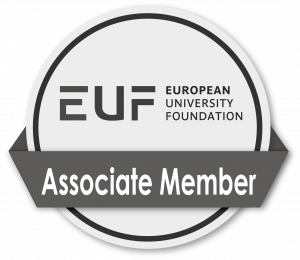Objetivos do Curso
This BIP proposal aims to promote the following outcomes:
1. Enhancing interprofessional collaboration between students with different backgrounds. The correct valorisation of waste can only be achieved when the three sustainability pillars are included in the study. The proposed activities will underscore the importance of “learning from, with, and about each other”.
2. Promoting intercultural understanding by exposing students to different realities according to each country’s goals, needs, citizens, and economic growth. This approach will highlight the paradigm shift to a more local and circular economy to fulfil each country’s waste management targets in light of their regulations.
3. Fostering connections between academia and society to develop and present solutions to organisational or societal challenges and difficulties. By exposing students to concrete problems, students will develop critical thinking to consider possible alternative solutions to solve them.
Different learning approaches will be used to reach these outcomes. The virtual sessions will provide moments to introduce all the participants and final evaluation (first and last sessions). The second session aims to provide a general overview of waste valorisation in the construction sector. The activities during the physical week will provide hands-on knowledge of the difficulties and benefits of using and/or applying byproducts instead of natural resources. Different workshops in laboratories will be planned to evaluate the applicability of different wastes.
Objetivos da Aprendizagem e Competências a Desenvolver
Urban areas have a significant ecological footprint. The building value chain is responsible for 37% of global emissions. According to several organisations, including the World Economic Forum and the United Nations, construction is a key sector for addressing global warming. Several solutions are being implemented, such as precast concrete, modular construction, rehabilitation and reconstruction, 3D printers, bio-based construction materials (wood, timber, bamboo), and the introduction of industrial wastes in the sector.
In recent decades, several industrial wastes have been upcycled into byproducts, enhancing circularity. Examples include slags, demolition and construction wastes, ashes, dregs and grits, plastics, recycled crushed cement, rubber, and mine tailings.
This BIP is intended to give students a general overview of the current state of the art of waste valorisation in the construction sector, giving emphasis not only on designing and applying such byproducts but also on environmental issues and economic viability during the theoretical lectures (online) and the physical week. The lectures will also address manufacturing perspectives to understand what the industries are doing to reduce their ecological footprint. A comprehensive understanding of all the sustainability dimensions requires interprofessional groups with students from different backgrounds, namely environmental sciences, chemistry, architecture, industrial engineering, civil engineering, economics, and other relevant fields of study in waste management.
During the physical week, hands-on workshops will take place in the Department of Civil Engineering laboratories and aim to engage students in a new paradigm for construction activities.
Blended Intensive Program from Waste to Byproducts: New Paradigms to Construction Engineering
| Unidade curricular | Código | ECTS | Período |
| New Paradigms to Construction Engineering | 61005245 | 3 | 1º S |







